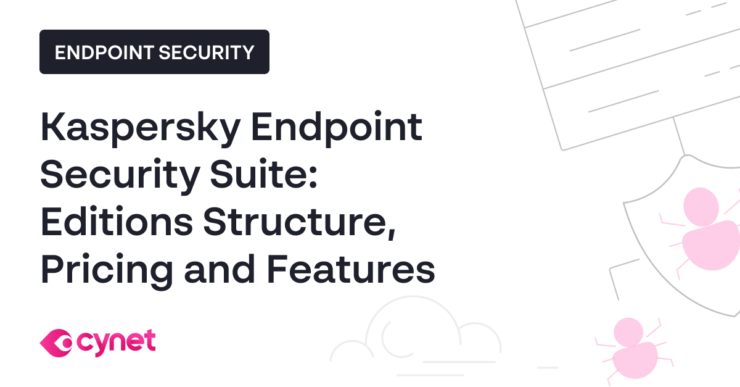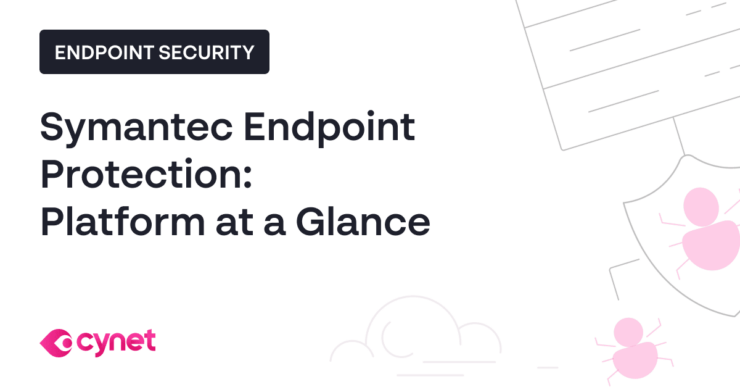
What Is Trend Micro?
Trend Micro has been protecting security solutions since 1988. Based in Tokyo, Japan, the company’s products range from security software for servers and cloud computing environments to protection for mobile devices.
Trend Micro offers a multi-layered approach to digital security, integrating advanced threat protection, anti-malware, and data loss prevention. Trend Micro provides cybersecurity solutions for home users, small businesses, and large corporations.
What Is Kaspersky?
Kaspersky Labs, founded in 1997 and headquartered in Moscow, Russia, has grown into an international cybersecurity company. It provides a portfolio of security software and services, including antivirus solutions, endpoint protection, and web protection solutions.
Kaspersky’s products protect against threats including viruses, malware, ransomware, and phishing attacks. The company has a research organization generating threat intelligence and providing security analysis.
Important note: Western governments and companies have banned Kaspersky in response to the ongoing war between Ukraine and Russia:
- In September 2019, the US Federal Acquisition Regulation Council implemented a policy that forbids federal agencies from purchasing Kaspersky products.
- The Federal Communications Commission (FCC) added Kaspersky and their subsidiaries to a list of companies posing an unacceptable risk to the security of US citizens and national security.
- Following US sanctions, Germany’s cyber authority also advised organizations and citizens to ban Kaspersky products.
This is part of a series of articles about Endpoint Security
Trend Micro vs. Kaspersky for Home Users: Key Differences
Core Offerings and Packages
Trend Micro offers a range of packages. The entry-level option, Antivirus+ Security, provides basic protection against cyber threats. Internet Security, the next level up, includes additional features like parental controls and system optimization tools. The Maximum Security package additionally offers multi-device protection, including mobile security. Lastly, the Premium Security Suite includes all features of lower packages plus 24/7 tech support and a VPN.
Kaspersky also offers several packages. The basic level, Kaspersky Anti-Virus, provides protection against common types of malware. Internet Security, the next level, includes features like a firewall, email spam filtering, and parental controls. The Total Security package provides additional features such as password management and data backup. Kaspersky Security Cloud, the premium offering, includes all features of Total Security plus adaptive security technology that adjusts your security settings based on your behavior.
Threat Detection and Protection
Trend Micro is known for its malware protection capabilities. Independent tests have shown that it offers nearly 100% malware detection and removal rates. Its cloud-based AI technology provides real-time protection against emerging threats. However, the solution can be resource-intensive, possibly slowing down systems during scans.
Kaspersky also provides high malware detection and removal rates, scoring perfect or near-perfect scores in independent tests. It uses a combination of traditional signature-based scanning and heuristic analysis to identify threats. Kaspersky is less resource-intensive compared to Trend Micro, causing minimal impact on system performance even during full scans.
Pricing and Licensing Models
Trend Micro offers flexible licensing models, allowing you to protect multiple devices with a single license. Its prices are competitive. Its premium package, the Premium Security Suite, costs $149 per year for 10 devices, but prices are frequently discounted, sometimes by over 50%.
Kaspersky’s pricing is also competitive. Its Total Security package is priced at $90 per year for three devices. The basic Kaspersky Anti-Virus package is priced at $30 per year for one device.
User Experience and Interface
Trend Micro’s interface is user-friendly and straightforward to navigate. It uses a color-coded system to indicate your system’s security status. Its settings are easy to understand, and the software provides clear documentation for its features. However, some users find its notifications a bit intrusive.
Kaspersky’s interface is intuitive, and its dashboard provides a clear overview of your security status. The software provides an online knowledge base with detailed information about its capabilities. However, some users find its settings a bit complex to navigate.
Trend Micro vs. Kaspersky for Businesses: Key Offerings
Here are the main solutions provided by these two security vendors for businesses and large enterprises.
Trend Micro Vision One
Trend Micro offers a variety of features designed to protect a corporate network, including intrusion detection and prevention, anti-malware, web and email security.
Trend Micro Vision One uses AI and machine learning technologies to detect and block threats in real time. It also offers advanced threat protection, which can help protect your network from zero-day threats and other sophisticated attack tactics.
Moreover, Trend Micro Vision One provides visibility and control over the network. It visualizes security events on the network, and enforces security policies to ensure it stays secure. It also integrates with other security tools, allowing you to manage all your security from one central location.
Trend Micro XDR
Trend Micro XDR offers extended detection and response capabilities, providing organizations with a multi-layered security solution. The solution combines data from email, server, cloud workloads, and the network, with cross-layer detection to identify and respond to threats that may otherwise go unnoticed.
Trend Micro XDR uses machine learning technologies to enhance threat detection and response. Additionally, the solution offers security analytics capabilities, enabling security teams to visualize attacks and gain access to forensic data for deeper investigation.
Kaspersky Endpoint Security for Business
Kaspersky Endpoint Security for Business is designed to protect businesses from a range of threats, including malware, ransomware, and phishing.
Kaspersky Endpoint Security for Business uses a combination of traditional signature-based detection and heuristic analysis to identify and block threats. It also includes device control, web control, and patch management.
In addition, Kaspersky Endpoint Security for Business provides real-time protection against threats by scanning files, emails, and web traffic for malicious activity. It also offers a centralized management console.
Kaspersky EDR Expert
Kaspersky Endpoint Detection and Response Expert (EDR Expert) provides deep visibility into your endpoints, allowing you to detect and respond to threats more effectively.
EDR Expert uses AI and machine learning technologies to detect anomalies in your network that could indicate a threat. It also provides detailed forensic analysis, so security teams can understand the nature of a threat, and intervene to eradicate the threat on endpoints.
Furthermore, EDR Expert includes automated response capabilities. This means it can automatically take action to contain and eliminate threats, minimizing the potential damage.
Kaspersky EDR Optimum
Kaspersky also offers EDR Optimum, a lighter version of EDR Expert. EDR Optimum provides basic endpoint detection and response capabilities, making it a good choice for small and mid-sized businesses.
EDR Optimum includes features like threat detection, response automation, and incident investigation. It also integrates with Kaspersky Endpoint Security for Business.
Like EDR Expert, EDR Optimum uses AI and machine learning technologies to detect threats. However, it lacks some of the advanced features found in EDR Expert, such as detailed forensic analysis and advanced threat hunting capabilities.
Related content: Read our guide to endpoint security management
Trend Micro Vision One vs. Kaspersky Endpoint Security: How to Choose?
Consider the following criteria when selecting one of these security solutions:
- Organizational size and needs: Trend Micro’s solutions are typically geared towards larger corporations with vast networks, while Kaspersky offers solutions for both small businesses and larger entities.
- Performance impact: If system performance is a concern, Kaspersky generally has a lighter footprint compared to Trend Micro.
- Trust and geopolitical considerations: Organizations, especially in the West, should consider geopolitical issues surrounding Kaspersky and decide if this is a factor in their decision-making.
- Integration with current systems: Both solutions offer integration with other security tools. Consider which solution aligns better with your existing infrastructure.
- Support and resources: Evaluate the support, training, and resources provided by each vendor. Quick and effective support can be crucial during a security event.
- Threat detection capabilities: Analyze the detection rates and capabilities of each solution using third-party tests and reports.
- Customization and scalability: Consider how each solution can be tailored to your organization’s specific needs and how it can scale as your organization grows.
Learn more in our detailed guides to:
Cynet: Ultimate Trend Micro and Kaspersky Alternative
Cynet is a holistic security solution that protects against threats to endpoint security and across your network. Cynet provides all of the basics of perimeter security, including next-generation antivirus (NGAV), intrusion detection, and management of virtual private networks (VPNs).
Cynet’s intelligent technologies can help you detect attacks by correlating information from endpoints, network analytics and behavioral analytics with almost no false positives.
With Cynet, you can proactively monitor entire internal environments, including endpoints, network, files, and hosts. This can help you reduce attack surfaces and the likelihood of multiple attacks.
Cynet provides cutting edge EDR capabilities:
- Advanced endpoint threat detection—full visibility and predicts how an attacker might operate, based on continuous monitoring of endpoints and behavioral analysis.
- Investigation and validation—search and review historic or current incident data on endpoints, investigate threats, and validate alerts. This allows you to confirm the threat before responding to it, reducing dwell-time and performing faster remediation.
- Rapid deployment and response—deploy across thousands of endpoints within two hours. You can then use it to perform automatic or manual remediation of threats on the endpoints, disrupt malicious activity and minimize damage caused by attacks.
Learn more about our EDR security capabilities.
In addition, Cynet All-in-One provides the following endpoint protection capabilities:
- NGAV—providing automated prevention and termination of malware, exploits, Macros, LOLBins, and malicious scripts with machine learning-based analysis.
- User Behavior Rules—detecting and preventing attacks using compromised credentials through the use of behavioral baselines and signatures.
- Deception technology—planting fake credentials, files, and connections to lure and trap attackers, mitigating damage, and providing the opportunity to learn from attacker activity.
- Monitoring and control—providing asset management, vulnerability assessments, and application control with continuous monitoring and log collection.
- Response orchestration—providing manual and automated remediation for files, users, hosts, and networks customized with user-created scripts.
Learn more about the Cynet All-in-One security platform.



